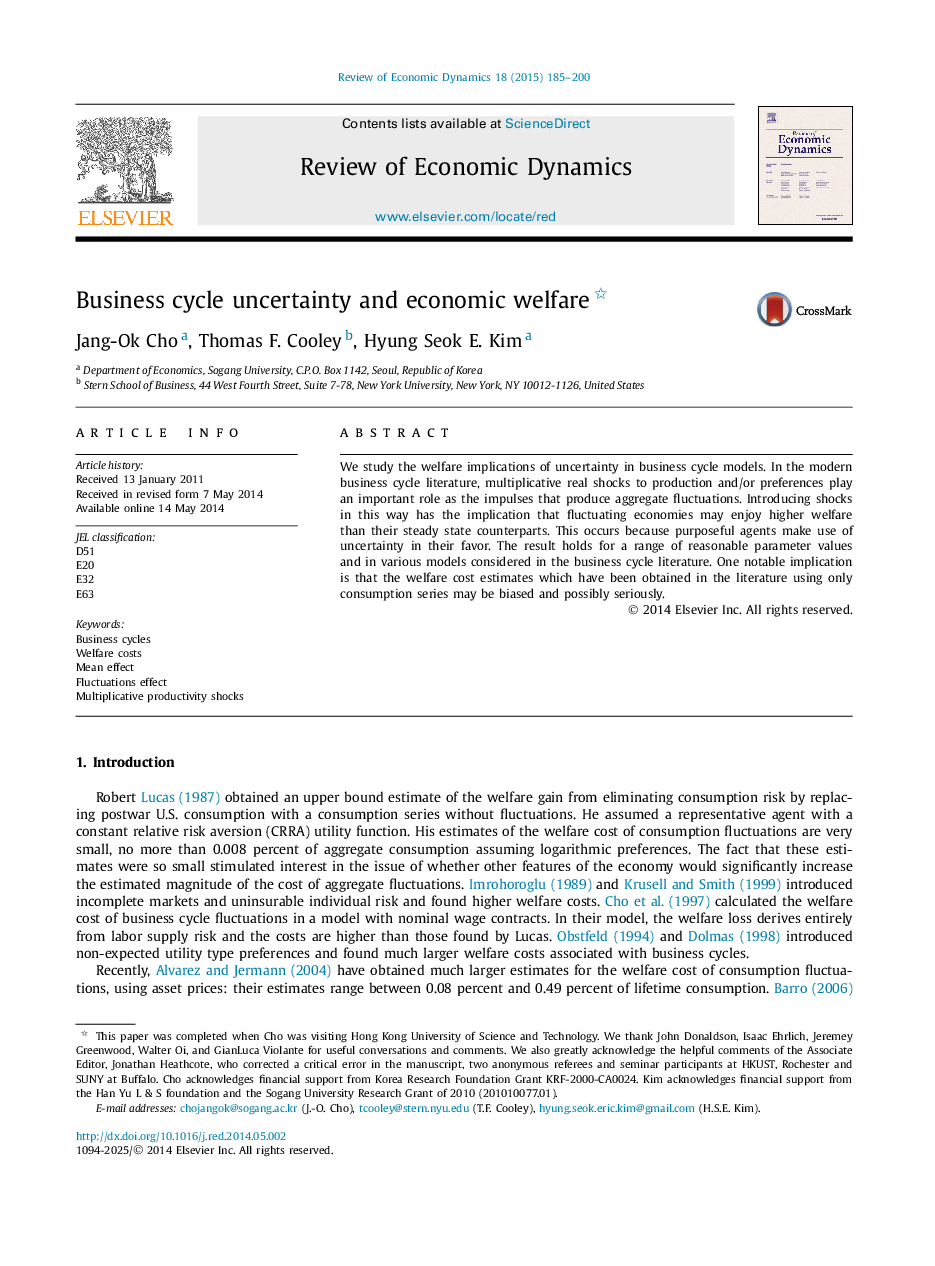| Article ID | Journal | Published Year | Pages | File Type |
|---|---|---|---|---|
| 986641 | Review of Economic Dynamics | 2015 | 16 Pages |
•The welfare implications of business cycle models with multiplicative shocks to production and/or preferences are studied.•Fluctuating economies enjoy higher welfare than their steady state counterparts.•The welfare cost estimates measured by consumption series alone may be biased.
We study the welfare implications of uncertainty in business cycle models. In the modern business cycle literature, multiplicative real shocks to production and/or preferences play an important role as the impulses that produce aggregate fluctuations. Introducing shocks in this way has the implication that fluctuating economies may enjoy higher welfare than their steady state counterparts. This occurs because purposeful agents make use of uncertainty in their favor. The result holds for a range of reasonable parameter values and in various models considered in the business cycle literature. One notable implication is that the welfare cost estimates which have been obtained in the literature using only consumption series may be biased and possibly seriously.
